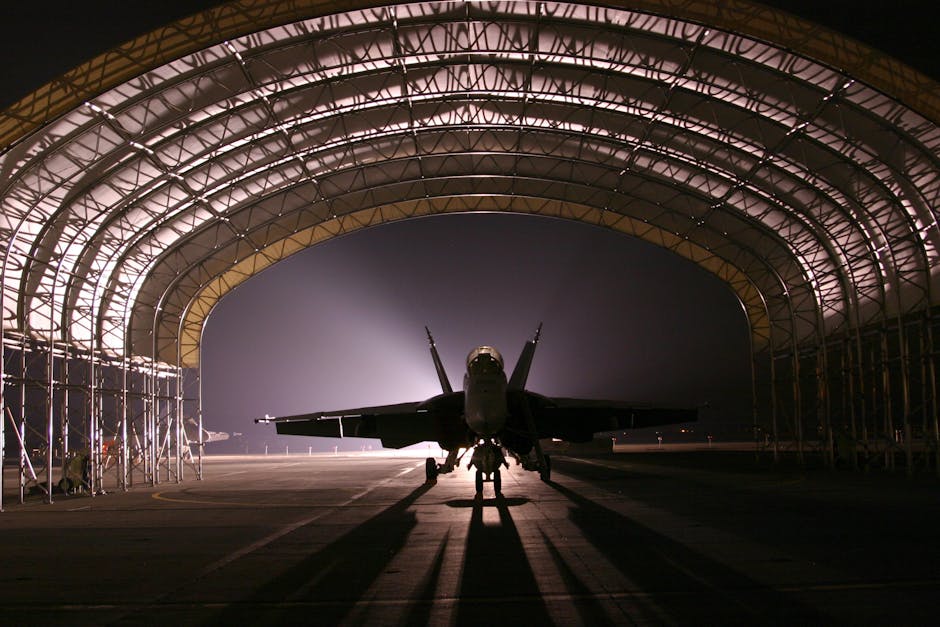No products in the cart.
Permanent Aviation Council: A New Era for the Aerospace Industry
The Permanent Aviation Council is set to redefine the aerospace industry's workforce and innovation landscape. Here's what to expect.
Washington, USA — The aerospace industry is on the brink of a pivotal transformation with the establishment of the Permanent Aviation Council. Announced on October 5, 2025, this council is designed to address the rapid evolution of aviation and its workforce, ensuring that the sector not only keeps pace with technological advancements but also prepares for the future workforce needs.
This initiative comes at a crucial time when the aerospace sector faces challenges such as a growing skills gap, increasing demand for sustainable aviation, and the need for innovation in response to climate change. The council aims to facilitate collaboration between government, industry leaders, and educational institutions to create a robust framework for workforce development.

The council will serve as a platform for stakeholders to discuss and implement strategies that enhance the skills of the workforce while also attracting new talent. With the aerospace industry projected to grow by 5% annually, reaching a market value of $1 trillion by 2030, the need for a skilled workforce has never been more urgent. This growth is driven by advancements in electric and autonomous aircraft, as well as an increased focus on sustainability practices within the industry.
 News
NewsUber’s Controversial Background Check Policies Allow Violent Felons to Drive
An investigation reveals that Uber's background check policies allow violent felons to drive, raising concerns about rider safety.
One of the council’s primary goals is to bridge the skills gap that has emerged as a result of rapid technological changes. According to a report from the Aerospace Industries Association (AIA), nearly 50% of aerospace companies reported difficulties in finding qualified candidates for technical positions in 2024. This gap is particularly pronounced in fields such as cybersecurity, data analytics, and engineering, where specialized skills are in high demand.
With the aerospace industry projected to grow by 5% annually, reaching a market value of $1 trillion by 2030, the need for a skilled workforce has never been more urgent.
To address these challenges, the council will work closely with educational institutions to develop curricula that align with industry needs. This collaboration is crucial, as it ensures that students are equipped with the skills necessary to thrive in the aerospace sector. Furthermore, the council aims to promote apprenticeships and internships, providing students with hands-on experience that is invaluable in today’s job market.
Another significant aspect of the council’s mission is to promote diversity and inclusion within the aerospace workforce. As the industry has historically struggled with diversity, the council intends to implement initiatives that encourage underrepresented groups to pursue careers in aviation. This includes outreach programs in schools and community colleges, aimed at inspiring the next generation of aviators, engineers, and technicians.
The importance of innovation in the aerospace sector cannot be overstated, especially in light of increasing competition from emerging markets. The council plans to foster research and development initiatives, positioning the U.S. as a leader in aerospace technology. By investing in new technologies such as advanced manufacturing processes and sustainable aviation fuels, the council hopes to support the industry’s transition towards greener practices.
 Business Innovation
Business InnovationDesigning for Flow: How Spatial Architecture Is Reshaping Career Capital and Institutional Power
By embedding natural light, flexible zones, and distraction‑mitigating technology into office architecture, firms are restructuring the very mechanisms of career…
Read More →Moreover, the council will play a vital role in shaping policies that affect the aerospace sector. By working with federal and state governments, the council aims to advocate for regulations that support innovation while ensuring safety standards are upheld. This balanced approach will be essential as the industry navigates the complexities of integrating new technologies.
As the aerospace industry stands at this crossroads, the Permanent Aviation Council represents a proactive response to the challenges ahead. By focusing on workforce development, diversity, and innovation, the council aims to ensure that the U.S. remains a global leader in aerospace for years to come. Stakeholders are optimistic that this collaborative approach will not only enhance the industry’s competitiveness but also create meaningful job opportunities for the workforce of tomorrow.
By focusing on workforce development, diversity, and innovation, the council aims to ensure that the U.S.
The formation of the Permanent Aviation Council is a clear indication that the aerospace industry is ready to embrace change. As it embarks on this new journey, the emphasis will be on building a resilient workforce prepared to meet future demands. The success of this initiative will be measured not just by economic growth but by the industry’s ability to adapt and thrive in an ever-evolving landscape.
 News
NewsThe Future of Banking: Embracing AI for Competitive Advantage
Artificial intelligence is revolutionizing the banking sector, improving efficiency and customer service.
Read More →Looking ahead, the collaboration fostered by the council could set a precedent for other industries facing similar workforce challenges. As sectors across the economy grapple with rapid technological advancements and changing consumer demands, the lessons learned from the aerospace sector may provide a roadmap for success. The emphasis on education, diversity, and innovation will be crucial for shaping the future of work, not just in aviation but across all industries.











